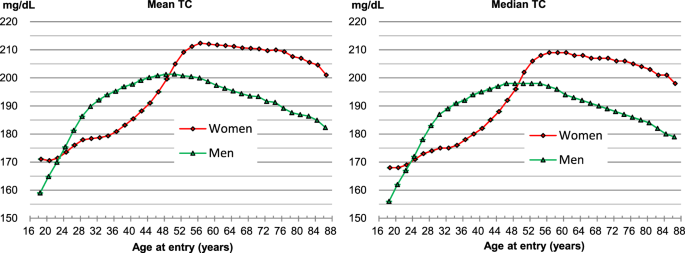I got the 70% figure here -
Link The reference for the claim is behind a paywall. There is no information available for T2s in remission that I can find. The idea that being in remission - having a 'normal' HbA1c after a diabetes diagnosis - makes a 'huge difference' to cardiovascular risk, is in some ways an article of faith. I believe that it probably does, but I don't know for a fact that it does. Nobody knows that.
I apologise for the the Staff Member bit - I took that literally. I did actually believe you were paid for your services to the forum.
I did not miss the reference or conclusions of either study. The idea that a total cholesterol level in the range of 5 to 6.5 mmol/L is abnormal and in need of treatment in an otherwise healthy person is indeed questionable in my opinion. That range is pretty close to the 'normal' range for the UK -
Link
Both studies do a good job of illustrating that low, supposedly 'healthy' levels are not at all a good indicator of overall health. However, there are some obvious reasons why very low total cholesterol is associated with increased overall mortality - for example, it's a marker of malnutrition, with all the health complications that entails -
Link Neither study makes the claim that lowering total cholesterol artificially with statins increases the overall mortality risk. That would be a very dodgy claim to make, as the many statin clinical trials would have shown up any such risks. Of the many side effects of statins that have been identified, sudden death is not among them. To the best of my knowledge every all-cause mortality study that's ever been done on statins shows an improvement. The point both studies make in their conclusions however is that total cholesterol somewhat above average levels probably does not need to be lowered - that's it's pointless, not that it's dangerous.
The current 'orthodoxy' does not claim that lower total cholesterol is associated with the lowest total risk of mortality, it claims it's associated with lower risk of cardiovascular health problems specifically; heart attacks and strokes. The QRISK calculator is not a total mortality risk calculator. That notion about total cholesterol is indeed questionable in my opinion. From what I can gather it is elevated LDL specifically, with the implied issues with high Apo-B levels in the bloodstream, that is very strongly associated with atherosclerosis, which appears to be the primary underlying cause of cardiovascular health issues linked to diet. I do not personally believe, based on my very limited understanding, that a person with moderately elevated total cholesterol (around the 6 mmol/L mark) but with good HDL levels and low LDL levels should automatically be prescribed statins.
I do not like or dislike the conclusions of either study, or any study. I dislike (understatement) the claim that elevated total cholesterol in women is in any way 'protective'. It's a claim that is right out on the ragged fringe of dangerous pseudo-science. The cholesterol study based on HUNT2 is an outlier as regards differences between men and women, and it does not justify any claim that high total cholesterol levels are 'protective' in any way.


